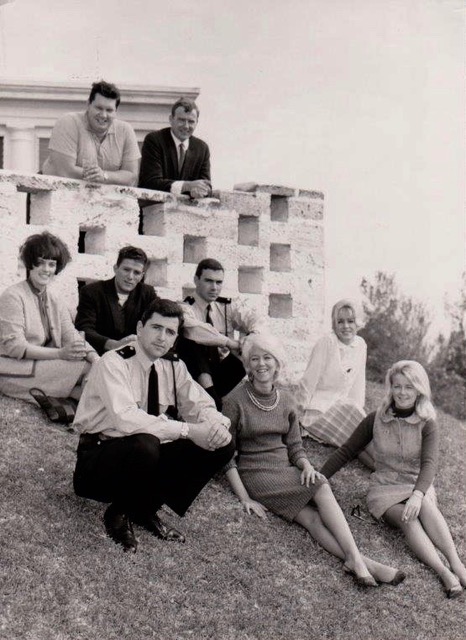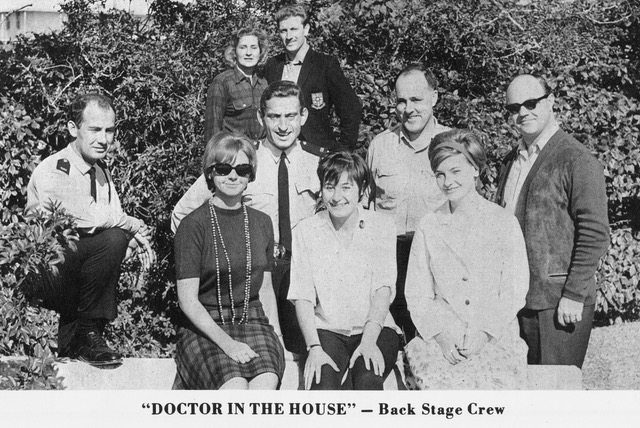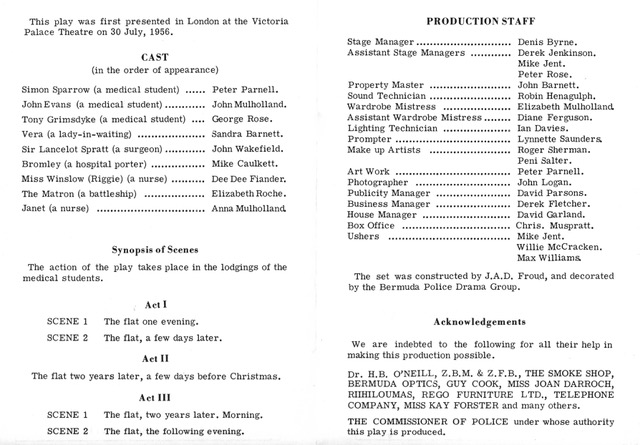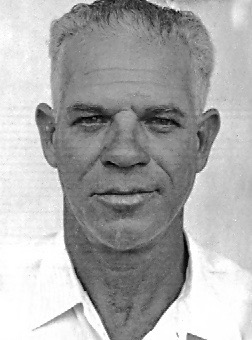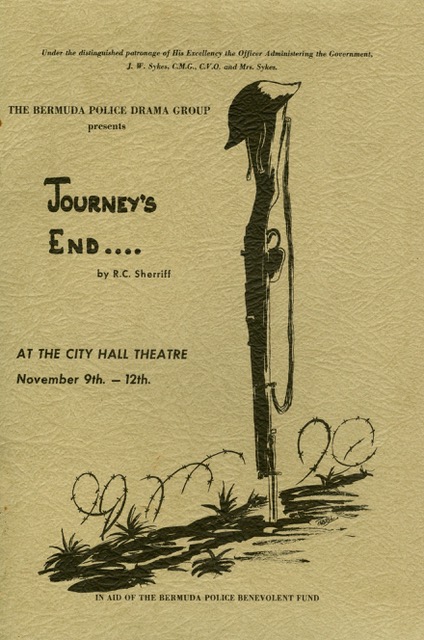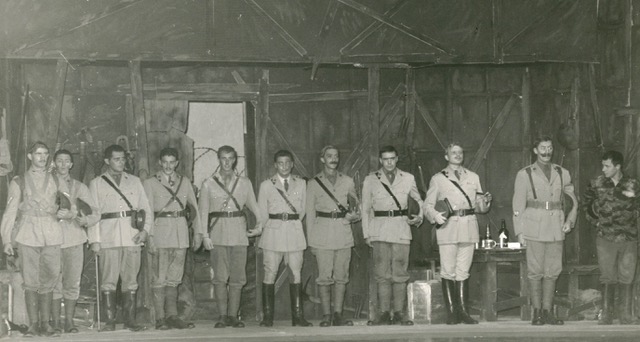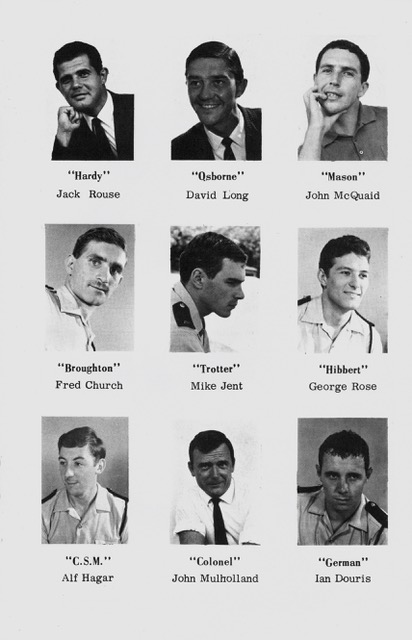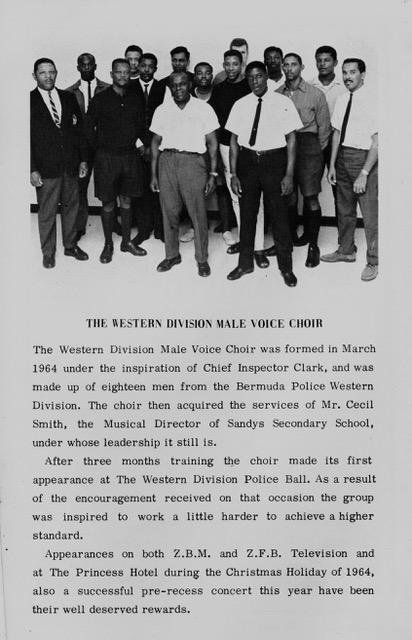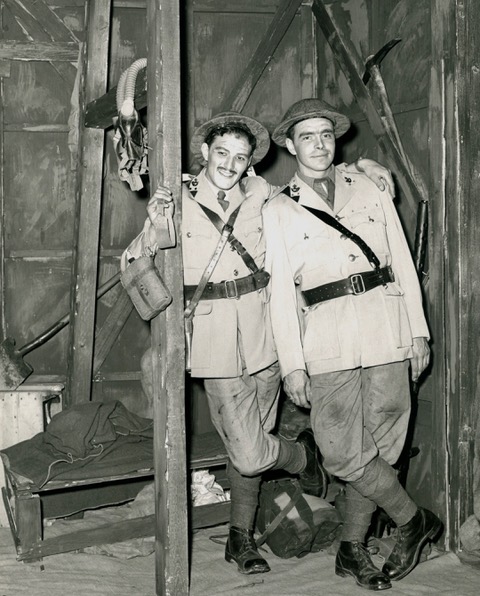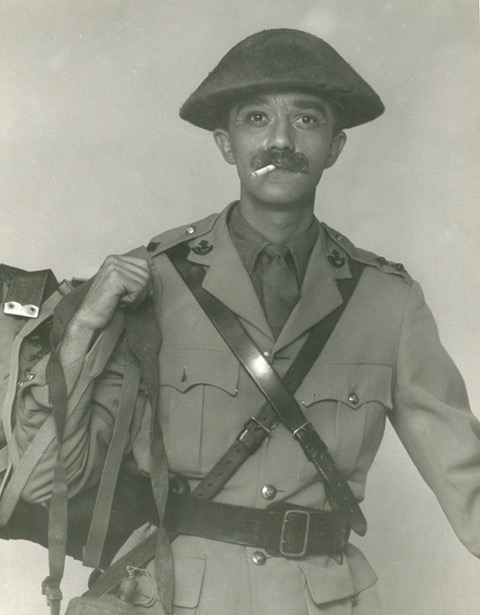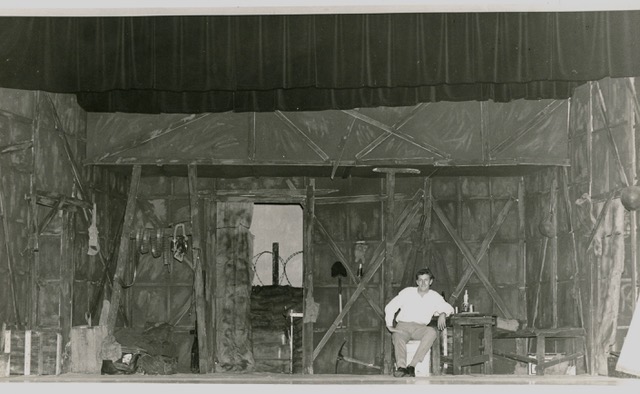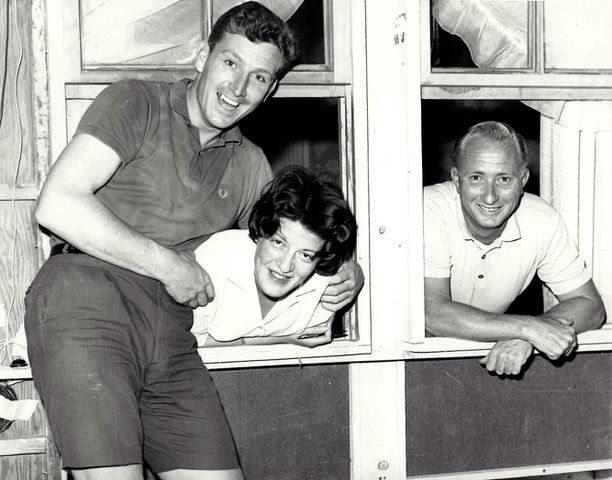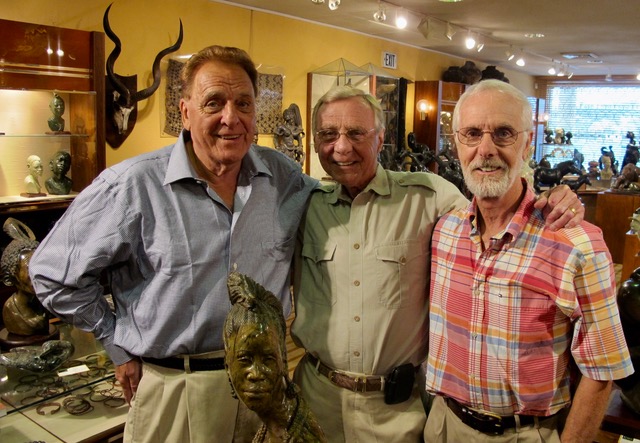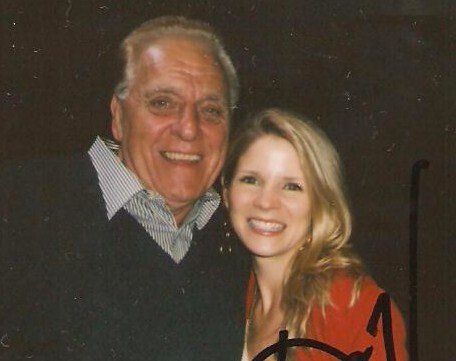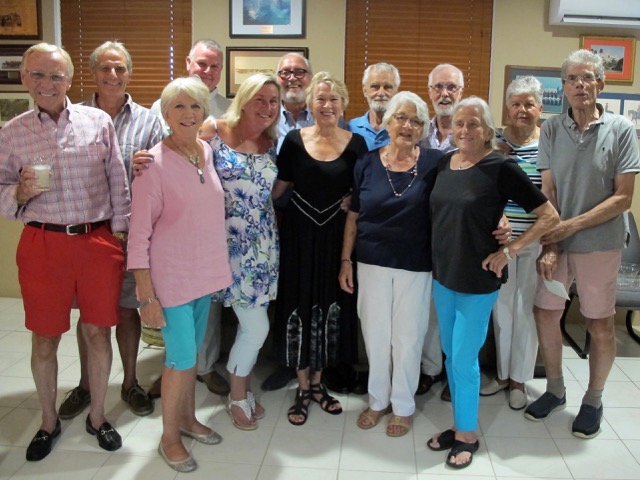Written by Roger Sherratt
The Bermuda Police Service has had more than its share of talented police officers, whether it be in team sports such as football, cricket and rugby, indoor sports including darts, billiards and snooker, or individual sports, and athletic endeavors such as running, track and field, cycling, sailing, triathlon, boxing to name a few. It is not surprising that the Police Service has always encouraged such activities to keep its members both fit and engaged in the local community. Commissioner George Robins was a great believer when recruiting officers from overseas, that new recruits would more easily adapt to their environment if they had talents they could utilize here in Bermuda.
One social activity not usually associated with the Police is the theatre. But back in the 1960’s the Bermuda Police was blessed with a group of talented individuals who created a highly successful Police Drama Group.
This article seeks to recognize this talented group who produced a series of plays performed at the City Hall Theatre. Who or what was the catalyst for this sudden and unexpected plunge into Bermuda’s cultural scene?
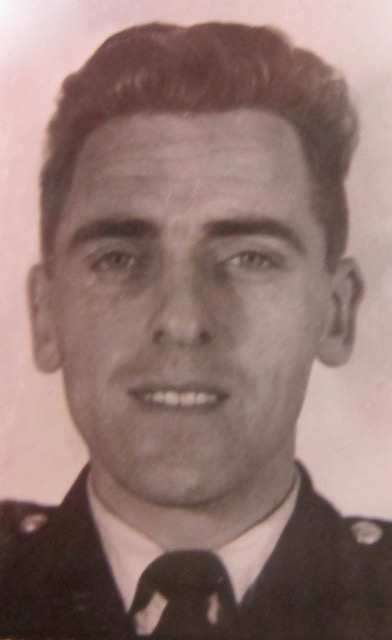 Ron Shelley
Ron Shelley Colin "Dusty" Hind
There is no doubt that the creation and success of the drama group can be attributed to two young serving police officers, Colin “Dusty” Hind, and Ron Shelley.
Dusty worked as a teacher prior to joining the Bermuda Police in September 1962, but he had been involved in professional repertory theatre while attending Portsmouth Art College where he obtained a degree in sculpture. He joined the Hector Ross Repertory Company at the Theatre Royal in Portsmouth and the Grand Theatre in Southampton, One of their productions was “The Long and the Short and the Tall”, with an all male cast When the play made its way to the West End in London one of the starring roles was to be played by Albert Finney who, unfortunately, broke his leg and was replaced by Peter O'Toole. His understudy for the entire run was an unknown actor by the name of Michael Caine! More on “The Long and the Short and the Tall” in a moment. Dusty also noted that while he was working with The Hector Ross and June Sylvane Repertory Company in Portsmouth, another name associated with Bermuda for many ears, Robert Stigwood, was employed by the same company to run their repertory theatre in Norwich.
Ron Shelley joined the Bermuda Police in September 1960 having served in the Royal Air Force from 1955-1959. When asked about Ron’s experience in theatre and the performing arts, Dusty says, “Ron had zero experience but he had an incredible entrepreneurial spirit and was intrigued by, and wanted to do something in theatre.
Ron was certainly a free spirit in many ways, and demonstrated his ‘entrepreneurial talents’ while living in Police barracks (single men's quarters) in Band Block at the far end of the Prospect complex. The Police Force was just beginning to train its officers in how to deal with riots, and several riot training exercises took place on the field in front of Band Block.
Young P.C. Ron Shelley on motor cycle patrol
On one such occasion a group of scantily dressed young ladies appeared on the verandah of Band Block to watch a riot drill in progress, much to the delight of the participants! It transpired that Ron had persuaded his fellow residents of Band Block to rent out their rooms to young college girls during College Weeks, and the girls were delighted to be entertained by the squad of virile young men parading up and down the field banging their sticks and shields, under the command of Deputy Commissioner Frank B. Williams! No-one quite knows how, but Ron got away with that escapade!
With the official opening of the City Hall, designed by Will Onions, in Hamilton in February 1960, Bermuda finally had a custom-built theatre, and Dusty recalls that the Bermuda Musical and Dramatic Society, along with several other groups began putting on plays in the new theatre, usually drawing room comedies by Noel Coward and Neil Simon.
THE LONG AND THE SHORT AND THE TALL
It was during one of their conversations in the Police Club bar that Dusty and Ron came up with the idea of putting on a play with a difference at City Hall. Dusty recalled the popularity of “The Long and the Short and the Tall” which had appeal because it had an all-male cast, and was about a rough and tough group of British soldiers on patrol in the jungles of Malaya in 1942 during the Battle of Malaya. It was a complete break from drawing room comedies. Dusty and Ron believed there was sufficient talent in the Police to provide the all-male cast, and the concept of having a Police Drama Group was born.
Dusty recalls, “There was some resistance from senior officers in the Police who felt it was inappropriate for policemen to be taking to the stage, and they also had concerns about having to organize rehearsals around shifts.
“A breakthrough in this regard came when Supt John McGregor, who had been recruited in the UK to head the newly created Special Branch, lent his support to the production. Mr. McGregor had previously performed in amateur theatre and had seen ‘The Long and the Short and the Tall’ playing in the West End. In fact he was keen to play the part of the Sergeant. This instantly gave credibility to the venture.
Jack Rouse
Peter Parnell
“Added to that there were several young constables such as Jack Rouse and Peter Parnell who had also done theatre. Dusty described how others starting jumping on board, including Tom Hill, Peter Gough, Bernard “Bernie” Burrell, and Ian ‘Baby’ Douris.
The idea of putting on a police production gained considerable momentum and the next step was to seek out volunteers for backstage crew. In fact, backstage crew invariably outnumber the actors, with “The Long and the Short and the Tall” being no exception. Robin Henagulph was recruited to do sound, and to assist in designing the set. Tom Doyle, Ian Davies, Peter Rose, John Barnett, “Crazy” Mike Wood, and Christine Muspratt all volunteered their services. When he first heard about the idea one curmudgeonly constable, William “Spider” McKenzie said there was no way he was going to get involved with a “bunch of faggots” but he quickly changed his mind and became one of the group’s biggest supporters!
J.A.D. "Whitey" Froud
Dusty pays great credit to J.A.D.”Whitey” Froud who built sets for B.M.D.S. productions and provided a high level of professionalism. Whitey was a carpenter who had his workship behind the old Prospect gymnasium within a stone’s throw of the Police Club, and when it came to designing the set a group of the guys went across the street to cut down dozens of pieces of bamboo which made a perfect backdrop when turned into flats for this first production.
Other civilians who lent their support were Jack Dunford as Stage Manager, Keith Hart, Judy Northover, Gillian James, Marilyn Harries and Gladys Cook (Production staff), while police wives and girlfriends assisted with sewing uniforms and acting as ushers.
Rehearsals were held at the Police Recreation Club and the school hall at Prospect Secondary School. They had two weeks of rehearsals at the Prospect School hall, and with minimal cash they had to build the set at Prospect and move it down to City Hall theatre at the start of the week it was due to open, in late January 1964
Despite having absolutely no previous experience, Ron directed the play with the assistance of Dusty. They had a 4-night run together with a full dress rehearsal. Attendance at the dress rehearsal was sparse and opening night was disappointingly small – less than half full, but fortunes were soon to change!
Dusty recalls that after the final dress rehearsal he and Ron went off to the New Queen Chinese Restaurant above Chesley White’s on lower Reid Street (a very popular restaurant with police officers at that time) and were served by “Big John” who was by far the tallest Chinese man in Bermuda, where they hatched a publicity scheme to attract a bigger audience. Between them they wrote a stinging letter to the editor of the Royal Gazette criticizing and condemning the Police for “producing a play with such rude language, violence and unpleasant themes – totally wrong and inappropriate for the Bermuda Police to be involved with”! They hand delivered the letter to the nearby offices of the Royal Gazette that evening.
The letter was published on the morning of opening day and several people were so incensed by the content of the letter they wrote in strong letters of support for the play! The controversial, albeit contrived publicity, along with good reviews in the newspapers, had the desired effect, and the next two nights were practically sold out.
Scene from "The Long and the Short and the Tall"
(l-r) Peter Parnell, Tom Hill (seated), Jack Rouse, and John McGregor
It was reported that, “The success of this first production seemed to hang on the air of realism which swept people along. A doomed group of men trapped in the jungle, the language, which while bawdy was never sensational, and the constant atmosphere-creating bombardment of sound created by Robin Henagulph which boiled through the play.”
ON MONDAY NEXT
After this initial success with a difference, the Drama Group attracted more people and it was decided to do something light as a change of pace. This resulted in the selection, after some long meetings, of Philip King’s “On Monday Next” which provided a complete change for the group as it called for the inclusion of six women, including Eileen Armstrong – a masseuse at the old Bermudiana Hotel, and Gail Endres, with Dusty as director. This play, running for four nights in April 1964 was rather unrehearsed and was not the best of productions.
Scene from "On Monday Next"
(l-r) Pete Parnell, Bernard "Bernie" Burrell and Colin "Dusty" Hind (Director)
Editors note - The above was all the information we had in our records about "On Monday Next" until we were contacted in 2022 by Gail Marirea (nee Endres) who was working in Special Branch as a secretary at the time of this production, and Gail was a member of the cast along with her friend Sy Shibuya (who later married Derek Jenkinson). Gail has kindly written an excellent article for our "Then and Now" column about her experiences working for the Bermuda Police and she also provided the following photos relating to the production of "On Monay Next" for which we are most grateful.
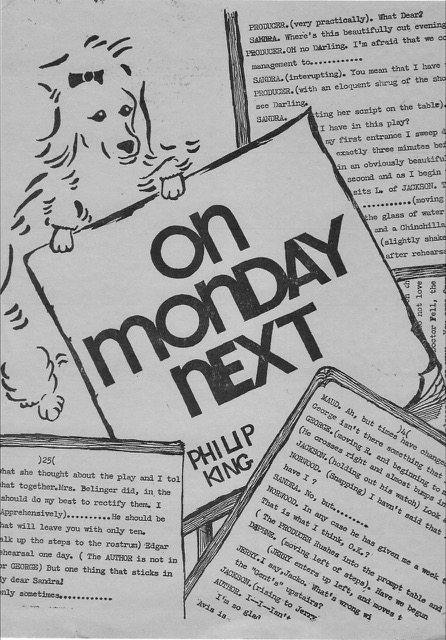 Programme for "On Monday Next"
Programme for "On Monday Next"
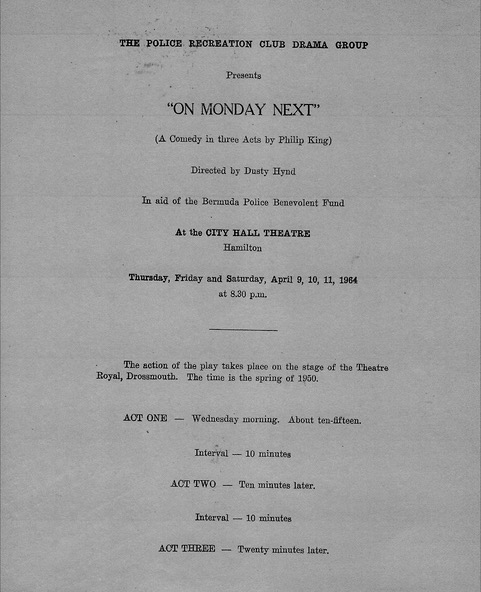
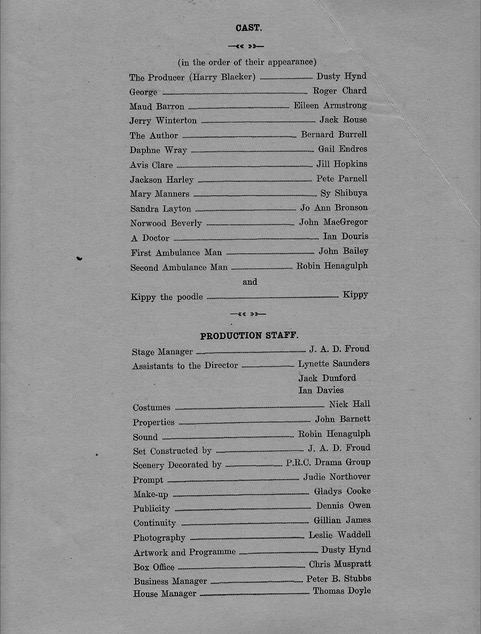
Pete Parnell, Sy Shibuya (sitting) and Gail Endres on stage
Cast of "On Monday Next"
SEAGULLS OVER SORRENTO
The group then decided to return to its original formula with “Seagulls Over Sorrento” written by Hugh Hastings. According to the programme notes written by Neil Thomas, "Seagulls Over Sorrento" returns to the original formula which launched the “Cop Shop Players” (Police Drama Group). Here you have an all-male cast, uniforms, and the happy mix of comedy and drama which results when a group of men are left together for any length of time. But the differences are also important. This is a peacetime play with the conflict not directed against a common enemy, but against unreasoning authority.”
Programme cover for Seagulls Over Sorrento
This play was my introduction to the Police Drama Group albeit by complete happenstance! Having arrived on Island as a young P.C. in May 1964, I walked into the Police Club one evening heading to the bar when another fairly new P.C., Bernie Burrell stopped me and asked if I was there to audition for "the play". I knew nothing at all about it but turned right, into the main hall, instead of left into the bar, and there were an enthusiastic bunch of guys doing readings for castings in “Seagulls”. They included Dusty Hind, Jack Rouse, John Mulholland, John McQuaid, Dave Long, Len Mustard, Bernie Burrell and Inspector Tommy Doyle. The only female in the hall was Eileen Armstrong who was conducting the auditions and was the director. I went in with no expectation of being chosen, but came out with one of the leading parts as Able Seaman Simms, known as “Sprog” – a nickname I’ve retained ever since whenever meeting up with Dusty Hind!
It was a major shock being given a part but the rehearsals were most enjoyable, that is, until Eileen had us put down the scripts and perform by heart. I can still recall the terror on opening night in late October 1964 when, as the curtain rose and I had the opening line, my mind went completely blank! Fortunately, someone had to blow a whistle which was my signal to speak – and the words came out without me even thinking about them. What a relief!
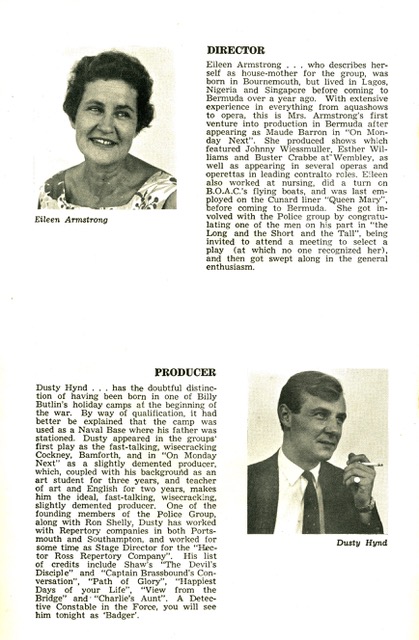
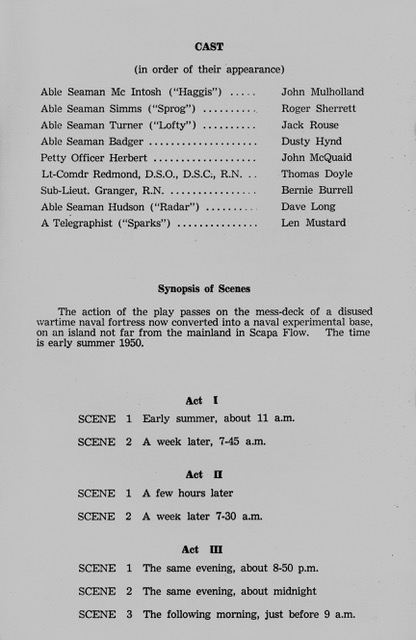
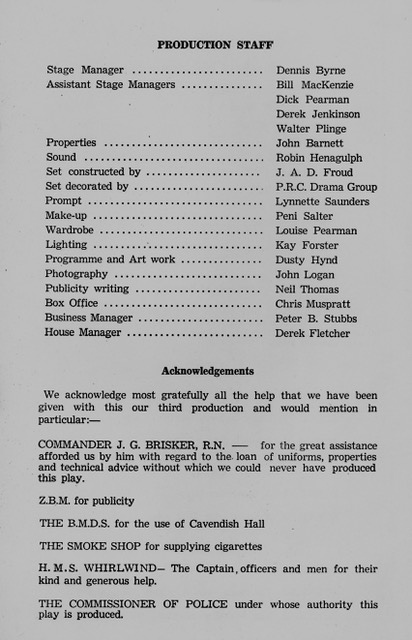
Scene from Seagulls Over Sorrento
(l-r) "Dusty" Hind, Jack Rouse, John Mulholland, and Roger Sherratt
Performing in Seagulls also gave me an insight into what it is to be “professional” on stage. There was a point in the play when a letter from one of the characters was found and opened after he had been tragically killed in an explosion. Dusty Hind had the task of reading the letter, with several of us gathered around him in sombre mood. I happened to glance over at what Dusty was reading and almost fell over when I realized that someone had replaced the correct wording in the letter with just two words, “F--- You”! Dusty never skipped a beat but I doubled up in uncontrollable laughter. I was astonished to read a subsequent review by David White in the Royal Gazette describing this scene and praising Able Seaman Simms for his most moving reaction to the letter when he broke down in tears!
Scene from Seagulls Over Sorrento
(l-r) John Mulholland, Dusty Hind, Roger Sherratt, David Long, and Jack Rouse
ARSENIC AND OLD LACE
Our next production, in May 1965, was Kesselrings, “Arsenic and Old Lace” which delighted audiences and had the largest cast to date, with eleven policemen and three female characters combining to enjoy performing this vintage comedy.
Members of cast and crew for Arsenic and Old Lace
Top row (l-r) John "Tiny" Wakefield, Peter Rose, Roger Sherratt (seated),
"Crazy" Mike Woods (with bugle) and David Long
Middle row standing - John Mulholland, Jack Rouse, John McQuaid (seated),
Anna Summers (Mulholland), Peter Parnell, and "Reverend" Mike Caulkett
Seated - Eric "Wee Eckie" Laing, Bernie Burrell, Eileen Armstrong, and Jenny Wyatt
Three beautiful theatre ushers
Penny Long, Georgina Armstrong and Lynn McQuaid
Two maybe not so sweet ladies!
Eileen Armstrong and Jenny Wyatt
Two elderly potential victims!
Roger Sherratt and David Long
DOCTOR IN THE HOUSE
By now the drama group was in full swing and tackled another comedy, “Doctor in the House” by Ted Willis in December 1965. Denis Byrne, our erstwhile stage manager later wrote that “Doctor in the House” did nothing to mar the Christmas spirit, with both the public and critics alike proclaiming the show to be a hit. The group now eighteen months old had only two of the original members still active, Jack Rouse and Peter Parnell, both having appeared in all but one of the productions during this time.
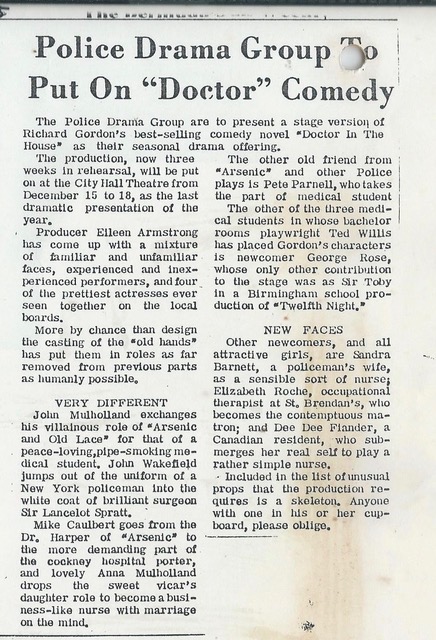 Newspaper article about forthcoming
Newspaper article about forthcoming
production of "Doctor in the House"
Under the distinguished patronage of His Excellency the Governor, the Rt. Hon. Lord Martonmere, P.C., and Lady Martonmere, "Doctor in the House" was performed over four nights shortly before Christmas at the City Hall Theatre, Hamilton.
"Here were the off-duty lives of a bunch of Medical Students, some gay, some earnest; all intensely human. Their happy triumphs and brave failures, love affairs and parties weave a many coloured pattern through the lives of several individuals confined under the same roof, their hopes and fears covered by a blithe exterior which ineffectually conceals their underlying earnestness of purpose."
Four new faces were welcomed to the group, Sandra Barnett, Dee Fiander, Elizabeth Roche and George Rose the return of the highly successful director of “Seagulls Over Sorrento”, Eileen Armstrong who directed the play.
"Doctor in the House" was first presented in London at the Victoria Palace Theatre on 30th July, 1956. The action of the play takes place in the lodgings of the three medical students including Tony Grimsdyke played by George Rose.
Production Notes advised as follows: ‘As always, casting requires great care. Tony should be as good-looking as possible; an exuberant, carefree fellow who is a natural leader. When he was downcast he goes the whole hog and is more amusing than ever. During his amorous demonstrations with Vera, he should be quite uninhibited, behaving as though no one else were present. His appearance before the curtain must be full of charm; he should woo the audience in a casual, almost off-handed manner, insinuating them into his confidence. Let him behave as though talking to two or three people in a bar.’
Cast of "Doctor in the House"
Top row (l-r) John "Tiny" Wakefield and John Mulholland
Elizabeth Roche, George Rose, Mike Jent and Sandra Barnett
Mike Caulkett, Anna Mulholland and Dee Dee Fiander
Editors note - Missing from the above photograph of cast members is Peter Parnell. Mike Jent was not a member of the cast but was Assistant Stage Manager and an usher.
Production Staff and Backstage Crew
Back row - (l-r) Eileen Armstrong and Denis Byrne
Middle row - Derek Jenkinson, John Barnett, Ian Davies and Roger Sherman
Front row - Peni Salter, Lynette Saunders and Elizabeth Mulholland
Programme notes for "Doctor in the House"
The Mid-Ocean News reported that the play would run for four frolicsome evenings under the direction of Eileen Armstrong. For what may be her last theatrical project before leaving the Colony, the experienced director had collected an interesting assortment of the tried and the terrified. She had also provided the Bermuda stage with one of the loveliest quartets of females ever to flounce across the boards.
Even hospital life has its funny side and three important parts are taken by Pete Parnell, John Mulholland and George Rose. The girls who make their life difficult are played by Sandra Barnett, Dee Dee Fiander and Anna Mulholland.
The production was considerably indebted to the matron and staff of the King Edward VII Memorial Hospital for advice and essential props. A party from the hospital attended the opening night.
Marian Robb writing for the Mid-Ocean News proclaimed the play as "a zany comedy which was hugely enjoyed by the audience. Skillfully played, in clear contrast to sober Simon and his deadpan earnestness and naiveté are perennial students Tony Grimsdyke (by George Rose) and John Evans the casual collegian (by John Mulholland). Tony’s girlfriend Vera, of dubious status but undoubted value in the student household, is made credible and human by Sandra Barnett. Pleasant foils to her continental sophistication are the ever-hungry nurse Riggie, played by Dee Dee Fiander, and the non-glamorous but purposeful nurse Janet, brought to life by Anna Mulholland."
On the whole, wrote Ms. Robb, the new collection of actors and actresses, under the adept direction of Eileen Armstrong, have made the most of a frothy farce which rather sprawls in the first act but gains momentum in the second and third. The slap-happy setting for these collegiate capers, constructed by J.A.D. Froud and decorated by the Drama Group, serves well as combined living room, study, debating forum and impromptu surgery. Even the Impressionist picture and the stolen sign hang at rakish angles like the action.
S.A. writing for The Royal Gazette wrote that for the past three evenings the Police Drama Group has carried its audience off from pre-Christmas confusion into the totally relaxed world of three medical students.
Policemen George Rose and John Mulholland, cast as medical students Tony and John, are convincingly BAD medical students as the liquor flows, the girls thrive and a valiant effort is made to both entice GOOD medical student, Simon, played by Peter Parnell, into their own world of unwholesome fun.
Simon in his effort to oblige his roommates, ends up on the threshold of marriage – much to his own regret, and needless to say, that of fun-loving Tony and John; the prospective bride? – nurse Janet.
Anna Mulholland plays Janet and does a tremendous and hilarious job of carrying out her role as this attractive, bespectacled (terribly nearsighted) matrimonial-minded nurse.
John Wakefield gives a masterly performance in his interpretation of boisterous surgeon, Sir Lancelot, who best describes his attitude towards life in the line: “Tea! I said a drink man, not mouthwash!”
But the most comical of all is Mike Caulkett, cast as hospital porter Bromley – Always present to lend a helping hand and always very nearly scorned for his efforts.
The play is a success – the audience’s unrestrained laughter proves the point. Congratulations Police!
Floyd "Happy" Duerden
Whilst on the subject of "unrestrained laughter" I believe this is an appropriate point at which to remember one particular member of the audience for our Police Drama Group productions, and that is Floyd "Happy" Duerden who had served for many years in the Bermuda Police and was then Manager of the Police Recreation Club. "Happy" as he was known by everyone, surely lived up to his nickname because he had a most infectious laugh which seemed to spread like wildfire through the theatre whenever he attended any of our productions. He was the ideal person to attend comedy's, and he made such a difference we should have paid him to be there for every performance. Thanks "Happy" for being our number one fan!
Nearly twelve months were to pass before the group’s next production, during which time Eileen Armstrong, Peter Parnell, Peter Rose, John Wakefield and Mike Wood were to leave the Island. It was this loss of capable members which made more difficult the task of choosing a new play.
JOURNEY'S END
Programme cover for "Journey's End"
It’s ironic that at this time the group chose to embark on what was to be their greatest challenge – to present around Remembrance Day in November 1966 R.C. Sherriff’s military drama, “Journeys End” which has been described as “the greatest of all modern English war plays”. It was an intensely dramatic treatment of life in the trenches in 1918; a tragic and moving play showing the effects of war on a small group of young English officers. This play had first been presented in London at the Apollo Theatre on December 9th, 1928, and subsequently at the Savoy Theatre, Strand, London, in January 1929. Our director for this production was “Tony” Block who not only had lots of experience in amateur dramatics, he was also was very familiar with Journey’s End. He was assisted by Anna Mulholland the wife of John Mulholland. Anna was swapping floodlights for behind the scenes in this production, for she had previously appeared in two police productions, as Janet in “Doctor” and Elaine in “Arsenic”.
This was to be the sixth production presented by the Bermuda Police Drama Group since it was formed in 1963, and the third with an all-male cast in a wartime setting.
Cast of "Journey's End"
(l-r) Fred Church, John McQuaid, Jack Rouse, George Rose, Roger Sherratt,
John Instone, David Long, Mike Jent, John Mulholland, Alf Hagar and Ian Douris.
This was a much larger cast than Seagulls and included several newcomers – Fred Church, John Instone, Mike Jent, and Alf Hagar. They joined experienced players such as Jack Rouse, Dave Long, John McQuaid, George Rose, John Mulholland, Ian Douris, and Roger Sherratt who was making his fifth appearance on the Bermuda stage. John Instone was as an excellent actor who took the major role and went on to perform in many BMDS productions, one of which was the lead role in Hamlet.
The play was performed over the four evenings surrounding Armistice Day under the distinguished patronage of His Excellency the Officer Administering the Government, J.W. Sykes, C.M.G., C.V.O. and Mrs. Sykes.
Tickets went on sale at 20/- and 15/-, with all proceeds going to the Police Benevolent Fund.
The setting was a dugout on the Western Front, in late March 1918, at the time of a massive and devastating German offensive that broke through the lines in the Somme area. Many thousands of men faced that deadly onslaught but this play focuses on eleven of them, and on their life in the British trenches just before St. Quentin, 1918.
Pre-release press reports noted that the play narrates a series of portraits of these soldiers, highlighting each one’s weaknesses, strengths, hopes and fears against a backdrop of a cruel, dirty war that had been going on nearly to the end of human endurance. It is a serious play, but there are moments of humour, too – the humour of the fighting man, that helps him keep his sanity.
On stage, a gloomy tunnel exited the dug-out into the moonlit evening of this March day. The earthen walls deaden the sounds of war, making them faint and seemingly far away, although the front line is only fifty yards ahead.
Big Ben chimed followed by 11 strokes and, on the last, the curtain opened to a completely black stage. Whiffs of gunpowder assailed the senses as the muffled sounds of distant gunfire faded out to be replaced by music from the Planet Suites.
A single spot-light illuminated a hitherto unseen Hibbert (George Rose) seated at front-left of the stage and cued him to recite slowly:
I VOW TO THEE MY COUNTRY
ALL EARTHLY THINGS ABOVE
ENTIRE AND WHOLE AND PERFECT,
THE SERVICE OF MY LOVE
A LOVE THAT NEVER FAULTERS,
A LOVE THAT STANDS THE TEST
THAT LAYS UPON THE ALTAR
THE DEAREST AND THE BEST
AND THERE’S ANOTHER COUNTRY
I’VE HEARD OF LONG AGO,
MOST DEAR TO THEM THAT LOVE HER,
MOST GREAT TO THEM THAT KNOW
WE MAY NOT SEE HER ARMIES,
WE MAY NOT KNOW HER KING
BUT HER FORTRESS IS A FAITHFUL HEART,
HER PRIDE IS SUFFERING
AND SOUL BY SOUL, AND SILENTLY
HER SHINING BOUNDS INCREASE
FOR HER WAYS ARE WAYS OF GENTLENESS,
AND ALL HER PATHS,
ARE PEACE
Hibbert rose slowly and, followed by the spot-light, he exits U.C.
Mix Planets and fade bring up distant explosions as Captain Hardy is heard off left…..he enters – and Act I commences.
During the play, the Curtain was lowered once during Act II and twice during Act III, to denote the lapse of time. A Very light discharges every minute.
The finale found Raleigh (Roger Sherratt) lying dead on a bed. Stanhope (John Instone) was dead on the floor beside the bed.
Fade in Pomp and Circumstance No. 4 the latter part of which carried the taped voices of Stanhope and Raleigh reciting…. (Underlined is voice of Stanhope)
IF I SHOULD DIE, THINK ONLY THIS OF ME;
THAT THERE’S SOME CORNER OF A FOREIGN FIELD
THAT IS FOREVER ENGLAND
THERE SHALL BE, IN THAT RICH EARTH
A RICHER DUST CONCEALED;
A DUST WHOM ENGLAND BORE, SHAPED, MADE AWARE,
GAVE ONCE HER FLOWERS TO LOVE? HER WAYS TO ROAM,
A BODY OF ENGLAND’S, BREATHING ENGLISH AIR,
WASHED BY THE RIVERS, BLESSED BY THE SONS OF HOME
Then fade background music into Bugle playing “Last Post”. Move follow-spot to pick up Broughton (Fred Church) who moves down to Apron Stage. After last post, into Big Ben and 11 strikes as Broughton delivers…..
THEY SHALL NOT GROW OLD,
AS WE WHO ARE LEFT, GROW OLD
AGE SHALL NOT WEARY THEM
NOR THE YEARS CONDEMN
AT THE GOING DOWN OF THE SUN AND
IN THE MORNING,
WE, SHALL REMEMBER THEM
Fade Spot on Broughton who remains in position. Close the Curtain.
Music – Pomp and Circumstance No I. Open Curtain for curtain calls.
The Cast (in order of appearance) were: –
Jack Rouse (as Captain Hardy the lackadaisical, devil-may-care commander whose company is being relieved)
Dave Long (as Lieutenant Osborne the philosophical older officer)
John McQuaid (as Private Mason the wry-humoured (albeit sloppy) cook who manages to make even the tea taste of onions)
Fred Church (as Lance-Corporal Broughton the company runner)
Roger Sherratt (as 2nd Lieutenant Raleigh the young eager new replacement getting his first taste of war, and whose sister is engaged to Stanhope)
John Instone (as Captain Stanhope the company commander who had three bitter years in the trenches)
Mike Jent (as 2nd Lieutenant Trotter the jolly Cockney whose appetite comes first –
war or no-war)
George Rose (as the fear-ridden 2nd Lieutenant Hibbert a man whose nerves have been drawn to a breaking-point by the war)
Alf Hagar (as the efficient company sergeant major)
John Mulholland (as the somewhat pompous Colonel)
Ian Douris (as the German prisoner who speaks a few lines – in German!)
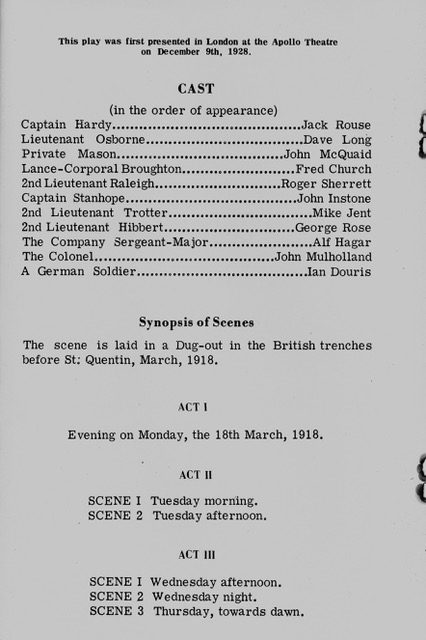
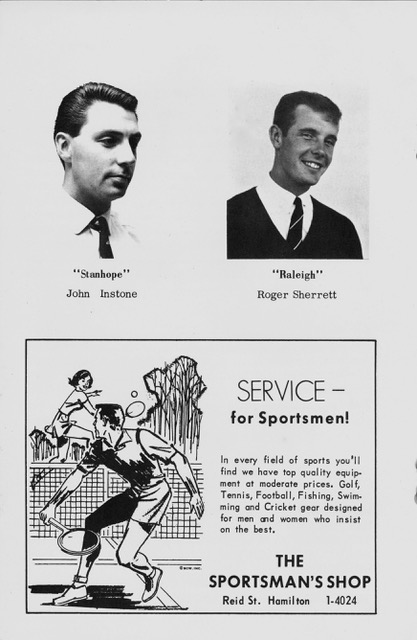
Programme notes
I should mention that backstage crew always play a vital role in any production and it was quite astonishing just how many talented people were involved in Journeys End and in all the other plays put on by the Police Drama Group.
Two people associated with this production had good reason for their very personal interest in the play. They were John Profit, who was in charge of make-up, and Mr. Bill Cooke, a World War I veteran who actually participated in the Battle of the Somme. Mr. Cooke was the commander of the X42 Trench Mortar Battery when the Germans made their massive break-through of the Allied lines.
John Profit’s interest lay in that he personally knew the author of the play Mr. R.C. Sherriff in 1927, and in 1931 he read the role of Stanhope for a Toc H Group in Hampshire.
Western Division Male Voice Choir
This production of Journey’s End” was considerably enhanced by having the Western Divisional Police Choir record a series of popular First World War songs to be used as a sound track for during the play and as intermission music. Their taped all-male voices could be heard during the arrival and seating of the audience followed by the National Anthem.
George Rose as "Hibbert" and Mike Jent as "Trotter"
David Long as "Osborne"
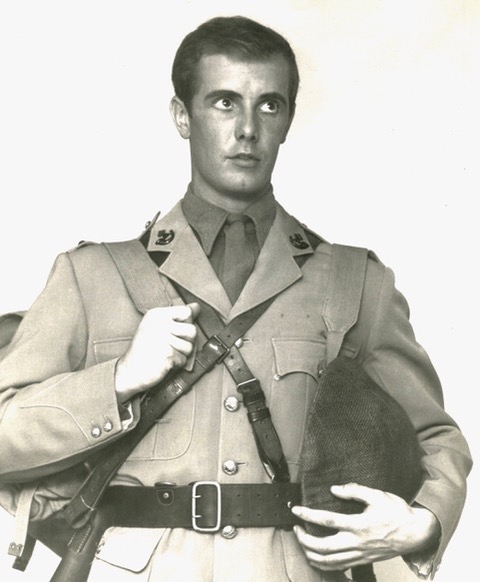 Roger Sherratt as "Raleigh"
Roger Sherratt as "Raleigh"
Performed before a relatively small audience, first-night reviews were generally disappointing. While the play is considered to be one of the greatest of all modern war plays the reviewer opined that it may very well be the greatest of them all. On the positive side, among the actors George Rose as the cowardly 2nd Lieutenant Hibbert would have brought praise to any company. His confrontation scene with Captain Stanhope was of the best.
Roger Sherratt – as 2nd Lieutenant Raleigh, the earnest and misunderstood young officer – played with a sensitivity that could not but win an audience. The old play hands, John Mulholland as The Colonel and Jack Rouse as Captain Hardy, both came off very believably.
The critic proclaimed that, ‘technically, the production is extremely good. No credit for set design is given in the programme and this is a shame since the set may well be the best this reviewer has ever seen on the City Hall stage. The difficult sound is also very well produced, well-modulated and quite fitting. The lighting is good. Generally, the play looks and sounds the way it ought to’.
A letter writer to the Editor of The Royal Gazette dated November 11, 1966 said the following:
‘I’d like to pay tribute to the Police Drama Group, who with such imagination and insight chose “Journey’s End” for production at this particular time.
‘As I watched the story unfold, with its sensitive play and interplay of character against character; the subtlety behind the words; the tense undercurrent beneath the contrived idle talk of “shoes and ships and sealing wax”; the desperate struggle by each man (yes even the seemingly unimaginative) to find enough physical courage to go through with the unbelievable frightfulness of the immediate future, I got a hollow feeling in the pit of my stomach as I realized what the inevitable end must be.
‘My only regret is that so few people were present. Why, I wonder. Fear of being harrowed in public? Or the words of the critic when he talked of flatness, inept delivery, blocks, miscasting and slow pace? I can only assume that the players benefited from his words of wisdom, for I had no such complaints to make of Thursday’s performance. For me it was a convincing show. I heard every word. Had it been rattled through at very high speed the sense of suspense would have gone. And too, I liked the restraint in David Long’s portrayal of the older man amongst these boys – it rang true to life. The stage set was truly excellent.
‘Somebody else said the play was dated. Is any play really dated which deals with the emotions of man? They don’t change. Certainly the language is dated in that there was an absence of the kind of crude sex-talk, of which we’ve had a surfeit recently, and which seems to be a characteristic of many modern plays.
‘This play was an inspired Act of Remembrance on the part of the Police Group. I wish you’d all gone to see it.”
Yours faithfully,
OLD STAGER
In an article in the 1967 Police Magazine summer issue, our Stage /Production Manager, Denis Byrne (alias ‘Adolf’) who played a vital role in organizing the drama group, noted that although audiences for Journey’s End were relatively small in numbers “they appeared well pleased with the performances but the drama group suffered at the hands of some of the critics who appeared somewhat disillusioned by our departure from comedy”
SUNBURST AWARDS - 1967
Bermuda theatre is a far cry from Hollywood, but each year the Bermuda Sun would announce their annual “Sunburst Awards” for achievements in local theatre. In terms of awards “Journey’s End” was our most successful production which tended to support the public's point of view.
The 1967 New Year “Sunburst Awards” season resulted in Journey’s End winning the following:-
Play of the Year – Journey’s End (Police Drama Group)
Director of the Year - Tony Block (Police Drama Group)
Best Supporting Actor - John Mulholland (Police Drama Group)
Most Promising Young Actor of the Year – Roger Sherratt (Police Drama Group)
Best Set-Designer - Denis Byrne (Police Drama Group)
Sunburst Award winner, Stage Manager Denis Byrne on the set of "Journey's End"
Backstage crew played a vital role in all our drama productions
(l-r) Denis Byrne (Stage Manager), Kay Forster (Lighting)
and J.A.D. "Whitey" Froud (Set Construction)
In a Bermuda Sun article (14th January 1967) it was also noted that Dusty Hind had been named Best Director the previous year for directing “Arsenic and Old Lace” by the Police Drama Group.
Coincidentally, George Rose informs me that a film version of Journey’s End has just been released (2018) and is coming to theatres soon.
If Men Played Cards As Women Do
While Journey’s End was being produced, Dennis Byrne was sitting as the Police Group representative on a newly formed Bermuda Drama League Committee, its main ideal being to promote a One Act Play Festival. After much deliberation Mr. Stanley Sheppard was asked to direct George Kaufman’s, “If Men Played Cards as Women Do” as the Police Drama Group entry.
Bermuda’s first One Act Play Festival was held under the distinguished patronage of His Excellency the Governor, the Rt. Hon. Lord Martonmere, P.C., K.C.M.G., and Lady Martonmere.
Performances were delivered over four nights in June 1967 at the City Hall Theatre, Hamilton. Three nights featured nine plays and one dance and on the final Saturday night the three best plays were re-performed. The presentation of a cup ensued. All tickets sold for 15/-.
An article in the Royal Gazette stated the following:-
“Laughter touches on hysteria when four gay young things dressed in trousers and waistcoats sit down for a game of bridge, forgetting the cards in preference for primping, gossiping and discussing the latest diet and trend in trouser cuffs.
It was the Police Drama Club’s interpretation of “If Men Played Cards As Women Do.” Provokingly amusing were John Mulholland, Jack Rouse, George Rose and John Instone. Stanley Sheppard directed the comedy.”
Mr. Jack Manning, the adjudicator for the Festival had the following to say about this production, “The play was very well done, the acting was good throughout, the set was imaginative and well constructed but somewhat neutral in colour. A little more business might have been introduced but altogether a thoroughly enjoyable show. “
The production crew was: –
Stage/Production Manager – Denis Byrne
Assistant Stage Manager – Mike Jent
Lighting Technician – Colin Finnigan
Sound Technician – Robin Henagulph
Wardrobe Mistress – Elizabeth Mulholland
Make-Up – Gladys Cooke
Groups performing in the Festival (1967) were:
Seaward Players – “The Zoo Story” by Edward Albee
Police Drama Group – “If Men Played Cards As Women Do” by G.F. Kaufman
B.M.D.S – “The Room” by Pinta
B.M.D.S – “Table By The Window” by Terence Rattigan
Unity ‘65 – “Hello Out There” by William Saroyan
Bermuda Technical Institute – “From Paradise to Butte” by Robert Finch
Whitney Institute – “The Stars Go Wrong” by F. Mitchell & E. Garrow
St. George Secondary School – “The Devil His Due” by Seamus Sail
Sandy’s Secondary School – “Why Teachers Go Nuts” by Preston Powell
Louise Jackson School of Dancing – “The Spider’s Feast”G. A. Cooper, M.C.P.
Dennis Byrne also reported in his article published in the 1967 Police Magazine that after three years of activity and fluctuating fortunes the group is now looking for new material in the form of both plays and players. We have now presented six plays at City Hall Theatre and as a result of which have donated £257.7.11 to the Police Benevolent Fund, not an unimpressive record for a new group but we do need all the new members that can be mustered. I’m sure there is hidden talent lurking under the various uniforms in the Force, so come and join us and have fun while doing so. Perhaps Michael Green (The Art of Coarse Acting) explains the comedy angle with this excerpt -
“Now doth the Muse of Drama stir this age
And thousands here the lure of the stage,
Then see the truckling city clerk at night
Transformed into a royal and noble sight,
Bedecked in tinplate armour watch him tower,
A swelling monarch for his petty hour.
The spotty typist sheds her office weeds
And lo! We have a Carmen straight from Leeds!
Fear not. All amateurs are not the same,
Some little Theatres higher standards claim,
And hold with fervour night obsessional
Hold amateurs are better than professional!”
Adolph
Sadly the Police Drama Group had run its course and no more plays were performed. Great credit has to be given to the two originators of the group, Dusty Hind and Ron Shelley, and also to Denis Byrne along with all the men and women who gave their time and effort in supporting this most worthwhile endeavor. From a purely personal point of view I thoroughly enjoyed participating in these productions and would like to think that so did everyone who played whatever role, no matter how big or small, during those magic four years.
RON SHELLEY - While serving in the Bermuda Police, Ron was initially posted to Central Division (Hamilton) which is where he was working at the time of the infamous Band Block rental-of-single-mens-rooms-to-college-girls incident which clearly demonstrated his creative entrepeneural skills! He, of course, directed "The Long and the Short and the Tall" despite the fact that he had absolutely no directorial experience. Clearly a man brimming with confidence!
When he resigned from the Bermuda Police in April 1964, Ron headed for the bright lights of New York City, and quickly became involved in the entertainment industry, working with the Rolling Stones, then Blood Sweat and Tears; he toured with Willie Nelson and also apparently played a pivotal role in getting Simon and Garfunkel back together for their famous free concert in Central Park in the late 1970's. We understand that he was very well known on Broadway and spent his life working with stars in the entertainment industry.
DUSTY HIND - Dusty joined the Bermuda Police in September 1962, and as mentioned earlier he had some professional theatrical experience prior to arriving on Island. When Ron left Bermuda in the spring of 1964, our Police Drama Group was in good hands with Dusty as the inspirational leader and creative force behind its continued success. As long as he remained in the Police our drama group thrived but Dusty's creative talents needed to be stretched and he resigned in February 1966.
He returned to the U.K. in 1966 but came back to Bermuda later in the year to marry Nancy Conyers, and he joined John White at Advertising Associates for three years before starting his own advertising company, Aardvark Advertising Ltd. in 1970. I always thought it was a stroke of genius for Dusty to use the name “Aardvark Advertising” because it was guaranteed to be the first name in the telephone directory!
During the next three decades Aardvark gained an excellent reputation and picked up many major clients including the Bank of Butterfield, A.S. Cooper’s, Bacardi International, the Princess Hotels, Cable and Wireless, Crisson’s and Reveen. Dusty sold the business to their staff in 1998, and returned to his roots in theatre right here in Bermuda which he always believed had an abundance of talent.
In 1993 he started the Jabulani Repertory Company with Patricia Podgson Nesbit producing shows in the Gazebo Lounge of the Hamilton Princess. During the next five years, Dusty and Patricia put on 23 different productions including musicals such as “Nunsense”, “Once on this Island” and “One Mo’ Time”. They also produced a series of comedies and murder mysteries utilizing over 100 local actors, actresses and backstage people. Dusty says, “Everyone got paid... Not big bucks...but it was a professional enterprise. Great fun and it introduced our visitors to local performers.”
The project closed in November 1998, and Dusty is proud of the fact that two of their performers, Lana Young and Darren Herbert, went on to successful professional careers as actors.
Bored with retirement, Dusty then started the Crisson and Hind African Gallery in 1999 at 71 Front Street, Hamilton which specializes in sculpture in stone, ten different minerals, by the Shona Fine Artists of Zimbabwe. As Dusty says, “It’s a great excuse to go to Africa once or twice a year. Still having fun.”
Meeting the founders of our Police Drama Group
(l-r) Ron Shelley, Colin "Dusty" Hind and Roger "Sprog" Sherratt
Ironically, it was in the Crisson and Hind African Gallery that I finally met up with Ron Shelley and Dusty - who as young police constables in the early 1960’s created our Bermuda Police Drama Group which I’d like to think gave so much pleasure to so many people - myself included. We reminisced about our collective memories of the Police Drama Group and Ron told us something of his experiences in the entertainment industry in New York. I had planned to have him write an article for our "Then and Now" column but lost contact with him after his visit. He did however, send me this photo of himself with one of the greatest stars of American opera and music, Kelli O'Hara.
Ron Shelley with Broadway superstar Kelli O'Hara
Sadly, we learned from one of his old friends and former colleagues in the Bermuda Police, Brian Malpas, that Ron died in New Jersey on 26th September 2016 after a long illness. For more information about Ron's contacts in Bermuda see our article at http://expobermuda.com/index.php/latest-news/601-passing-of-ron-shelley
POSTSCRIPT
In February 2017, we learned of the sad death of Denis Byrne who had been one of the stalwarts of the Police Drama Group and was our Stage Manager for most if not all of our productions.
A few months later we heard from his daughter, Kate (Byrne) Shaw who was born in Bermuda but had settled in England when her parents returned there in 1967. Kate was planning a visit to Bermuda with her husband Darren to celebrate her 50th birthday in the country of her birth; to celebrate her wedding anniversary with Darren, and to scatter the ashes of her father at Admiralty Cove which used to be the singlemen’s quarters for the Police and also a popular beach and dock for young policemen and nurses. No doubt Denis and his wife Iva, who was a nurse at King Edward Hospital when she met and married Denis, shared many fond memories of Admiralty Cove.
Kate also advised me that her father had meticulously kept all manner of photographs and press clippings of our drama productions, many of which are featured in the above article.
By coincidence, just a few weeks earlier I had been discussing with Dusty Hind the possibility of getting together to write a history of the Police Drama Group for our ExPo website, so Kate’s timing could not have been more fortuitous.
Kate and Darren arrived here in August 2017, and this was a perfect opportunity to hold a reunion for those members of our Police Drama Group who are still on Island. We gathered at the Officers Mess at Prospect on 27th August.
'Dramatic Group at Officers Mess' - August 2017
Back Row (l-r) Colin "Dusty" Hind, George Rose, Darren Shaw, John Barnett,
Dick Johnson, Roger Sherratt, Jennifer Johnson, Robin Henagulph
Front Row - Anna (Mulholland) Summers, Kate Shaw,
Sandra Barnett, Kay Steele and Nadine Henagulph
Our Get Together was a great success as several of those in attendance brought along photos, press cuttings and programmes of our drama group productions, including Kate who unveiled a suitcase of memorabila collected by her father. In attendance were Kate and Darren, "Dusty" Hind, John and Sandra Barnett, Robin and Nadine Henagulph. Anna (Mulholland) Summers, Roger and Marian Sherratt, George Rose, Kay (Forster) Steele, and Dick and Jennifer Johnson. Dick had played rugby with Denis in the Police Team, while Robin, also a rugby player, had been involved in the technical side of our plays, and was also Best Man at Denis and Iva's wedding.
For more details of Kate’s visit and the reunion, together with a Tribute to Denis Byrne, go to http://expobermuda.com/index.php/lia/597-dramatic-gathering-at-officers-mess
EDITORS NOTE - Writing this article would have been all but impossible without the invaluable assistance of several keys persons who have provided historical information, documents and photographs, much of which are contained in the article itself. In particular I would like to thank "Dusty" Hind for his valuable insight into how he and Ron Shelley came up with the idea of forming a police drama group and even selecting a play, "The Long and the Short and the Tall" while sitting in the Police Club bar. These two also believed there was sufficient talent in the Bermuda Police Force to put together a show in City Hall theatre, even though their first play was directed by Ron who had literally no prior experience of anything to do with the theatre! Ron was an object lesson in "self belief"!
George Rose has provided an abundance of material about the plays in which he was involved, and I also sincerely thank Kate (Byrne) Shaw who returned to the country of her birth bringing with her a treasure trove of material meticulously stored by her late father, Denis Byrne, who had played a vital role as Stage Manager in most of our productions. During Kate's visit to Bermuda we had a thoroughly enjoyable get together for as many of our drama group members as we could muster, and that was the final impetus for me to get on with the show!
Hope this bring back some fond memories for all those who were involved with our Police Drama Group.
Roger "Sprog" Sherratt
Editor
October 2018
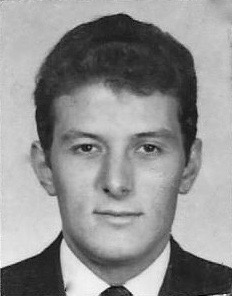
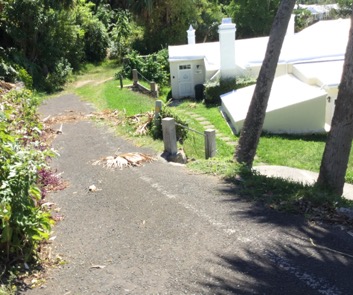
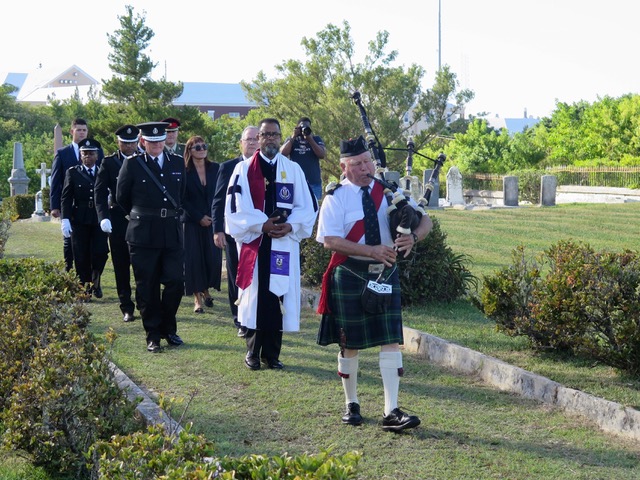
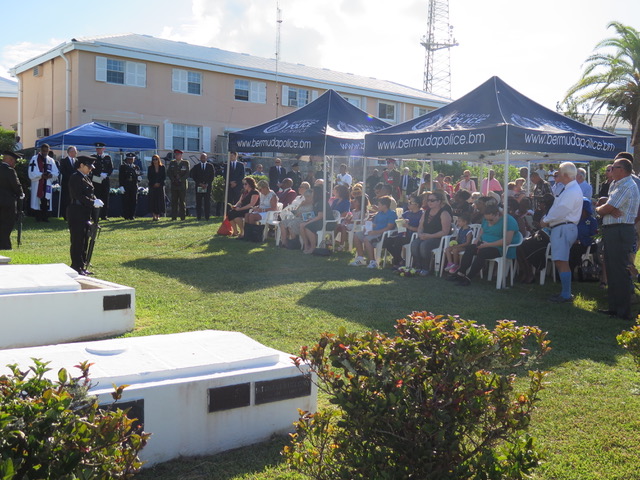
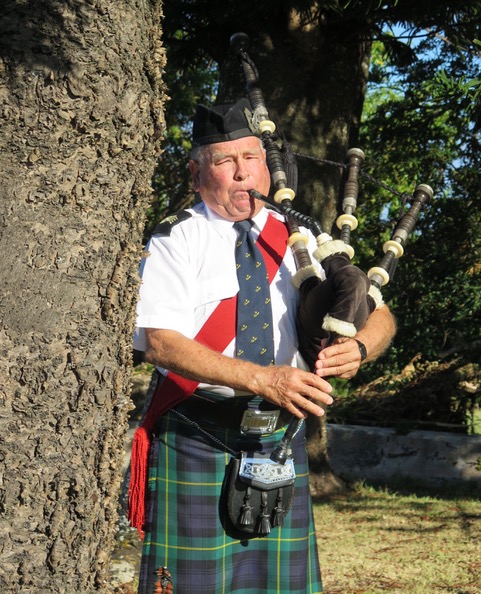 Piper David Frith
Piper David Frith 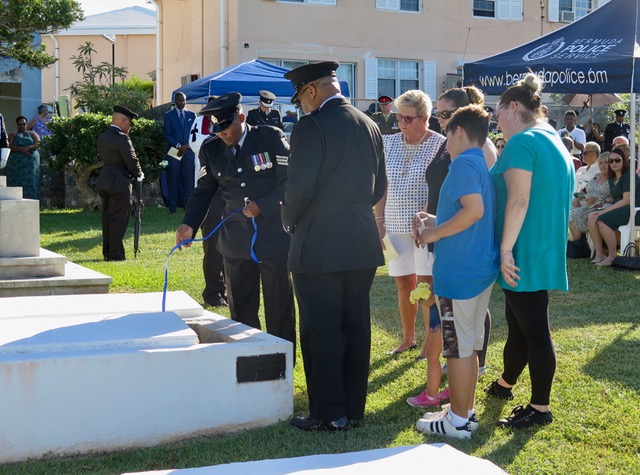
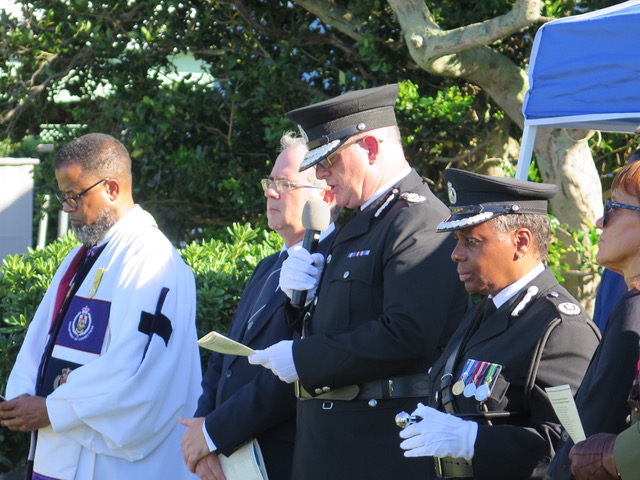
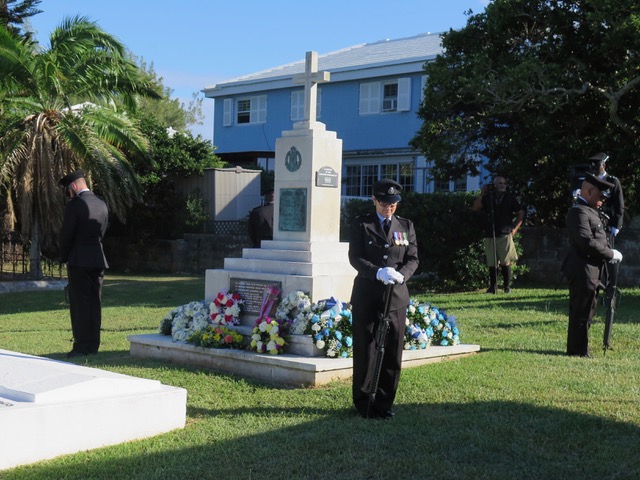
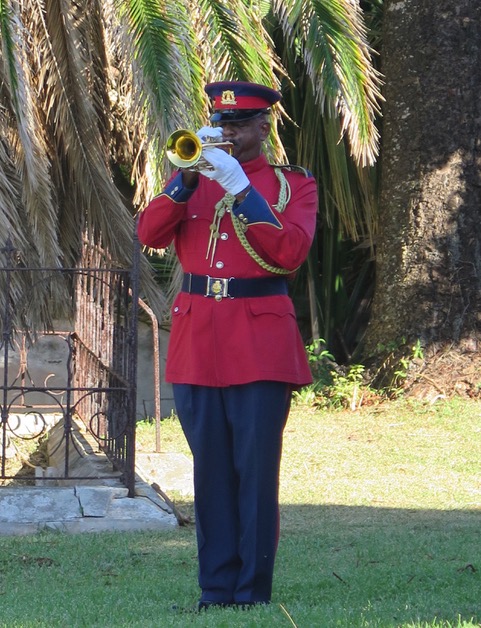
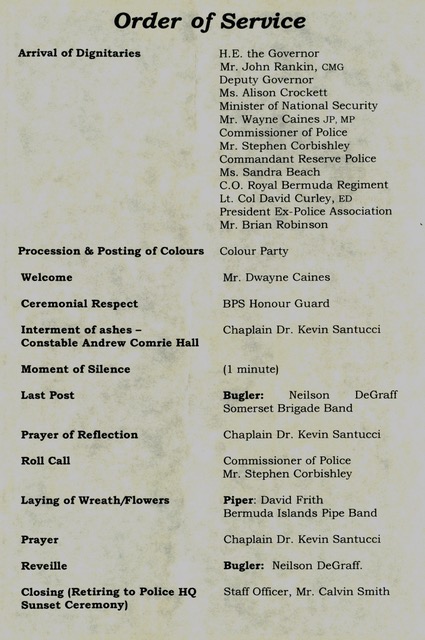
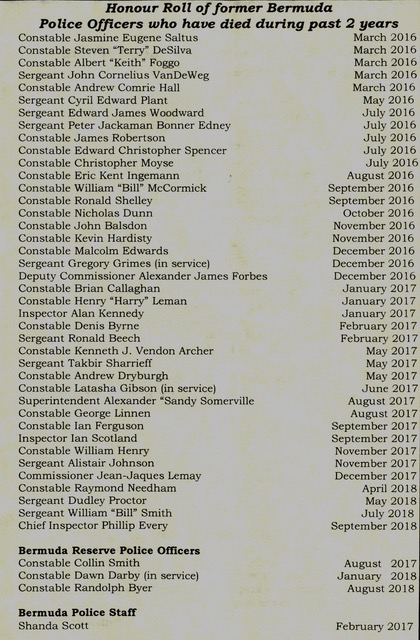
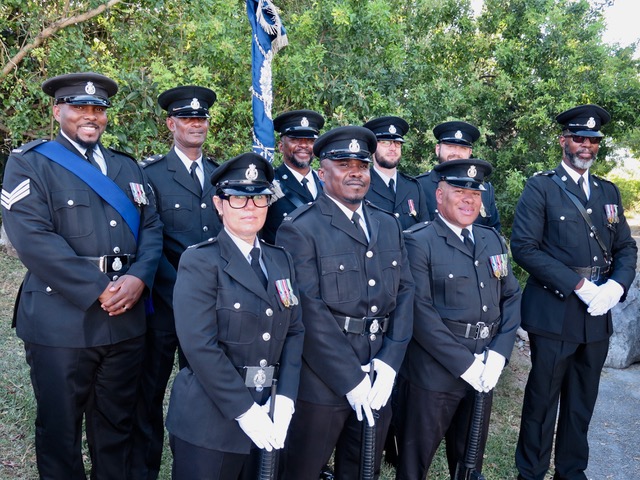
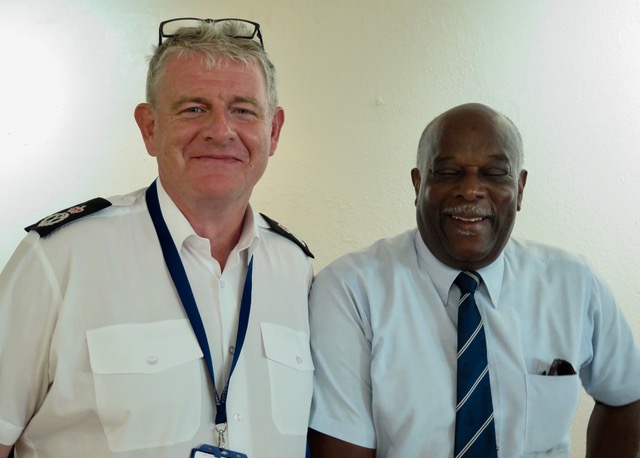
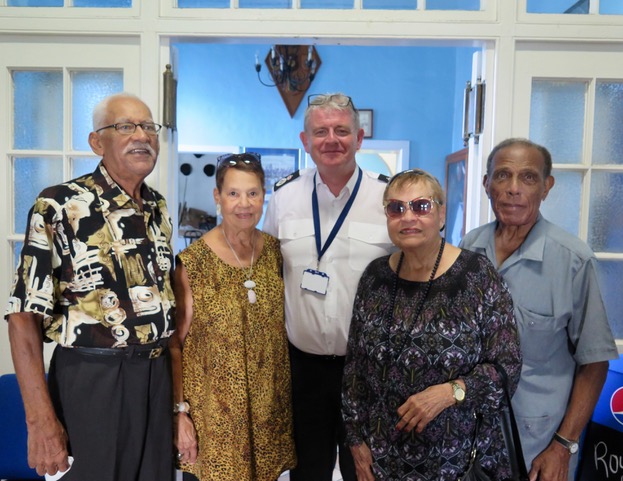
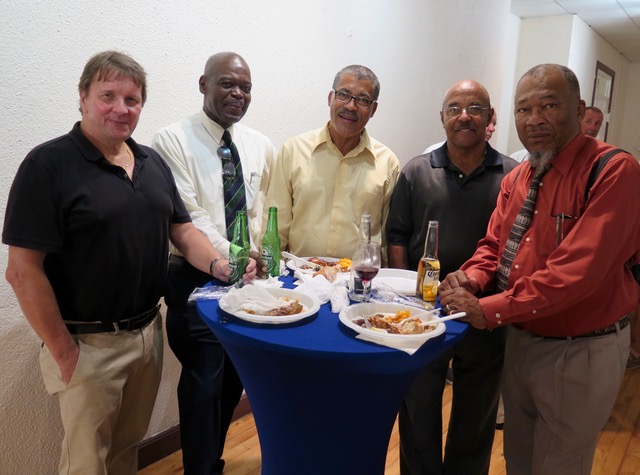
 Rosie Pearman and Carolyn Haynes
Rosie Pearman and Carolyn Haynes 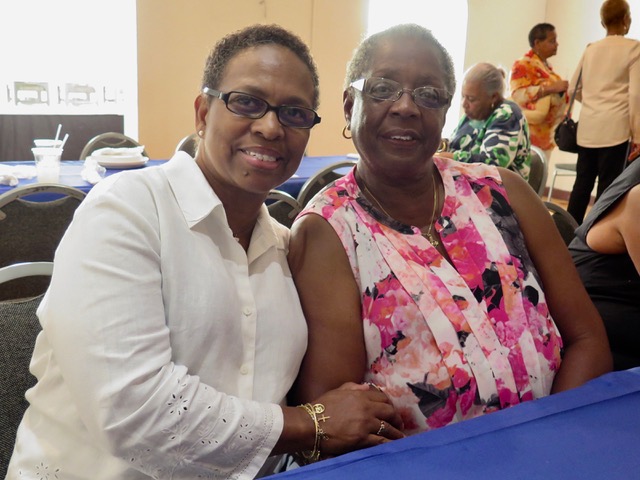
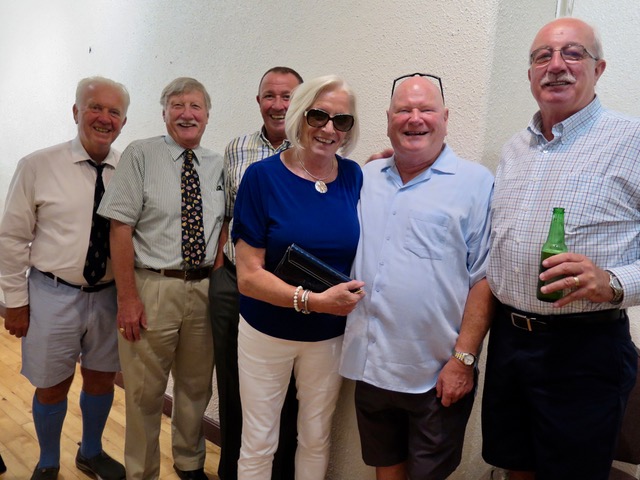
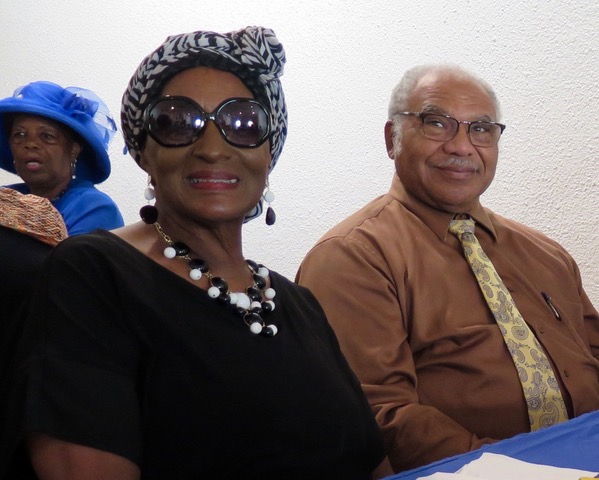
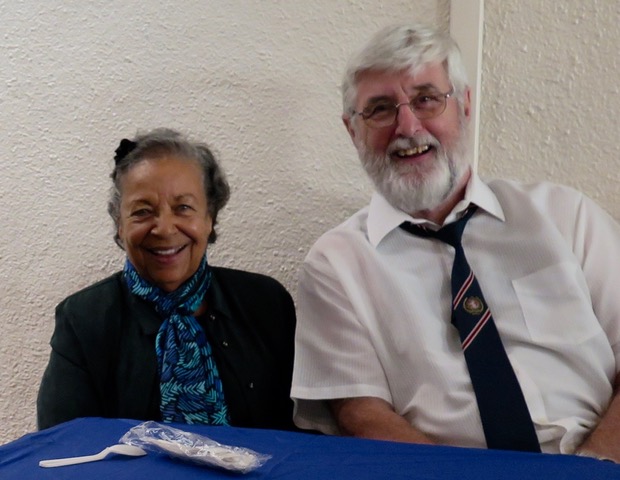

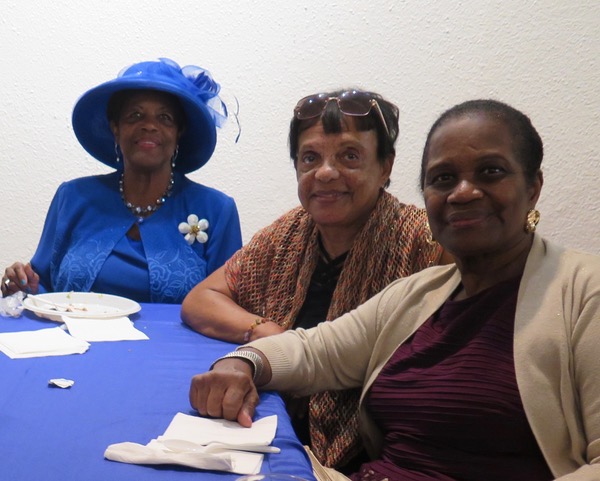
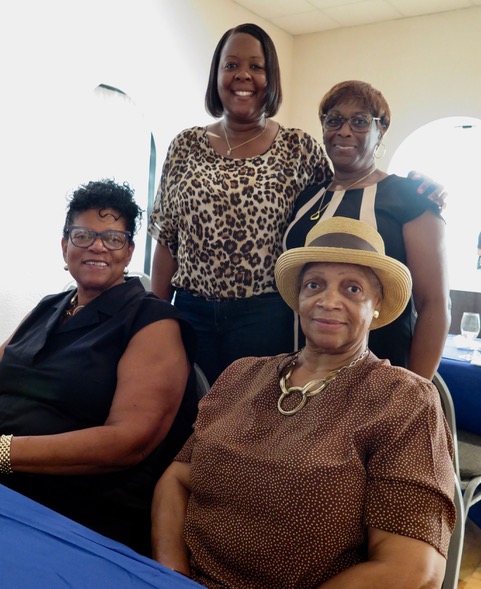
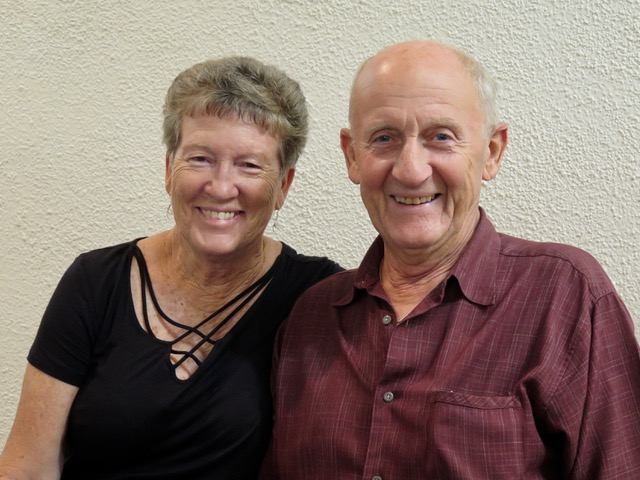
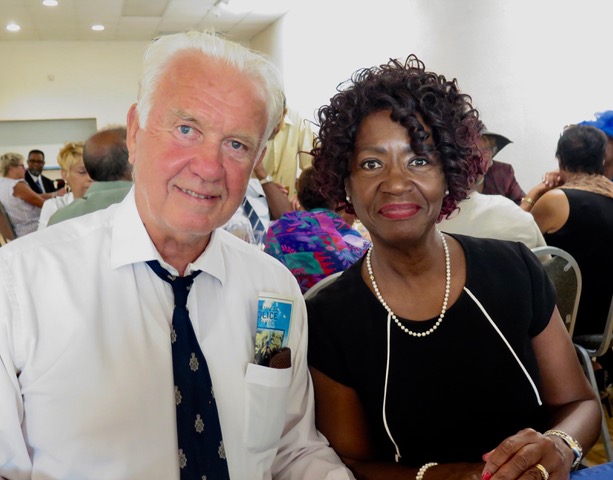

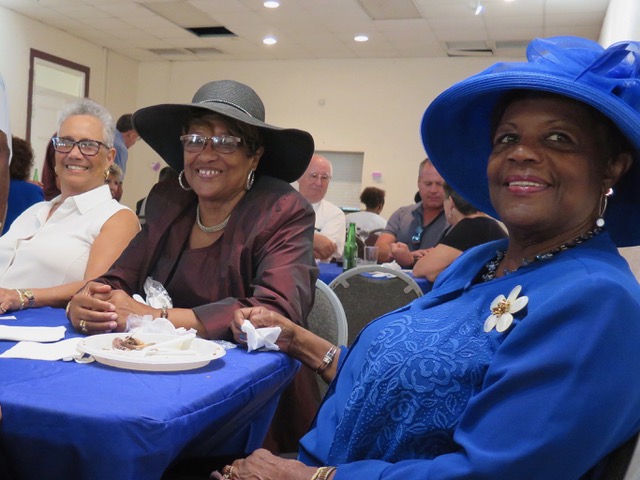
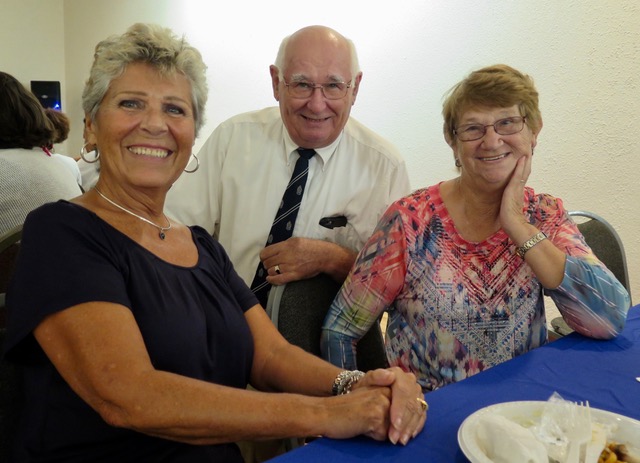
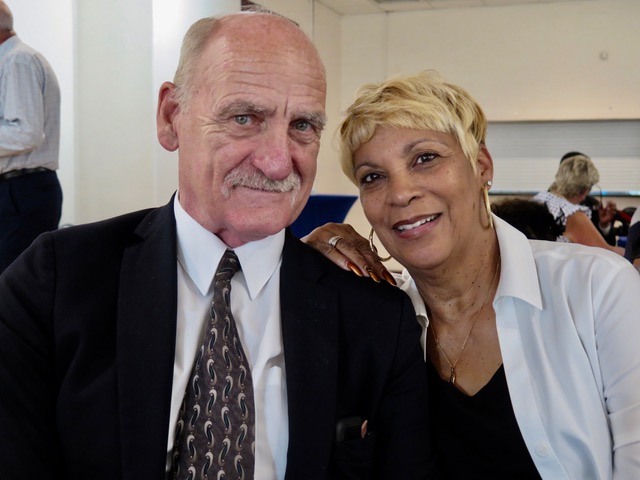
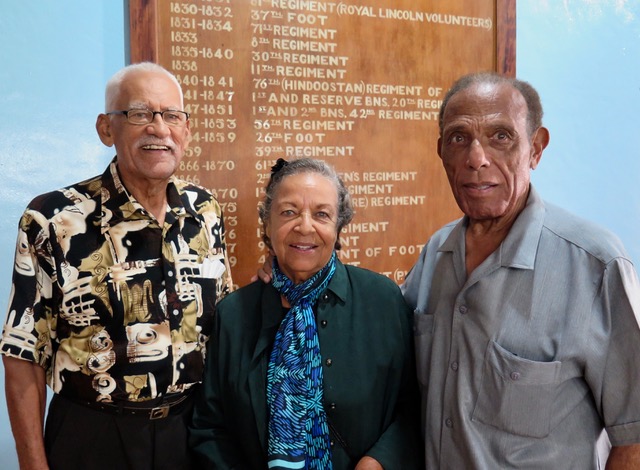
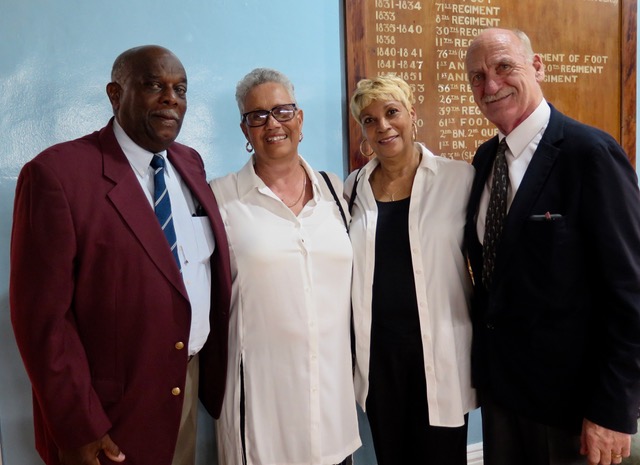

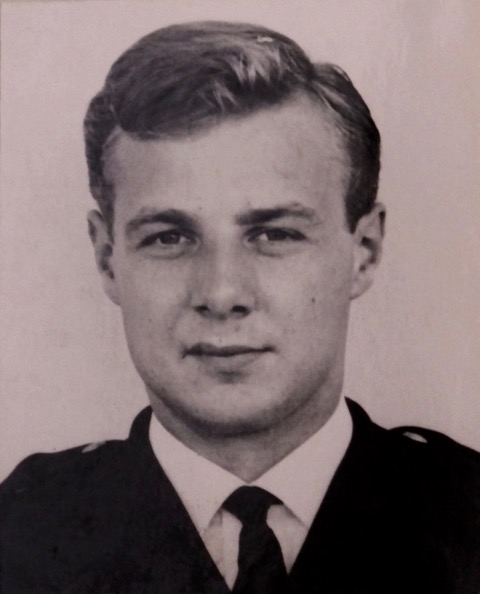
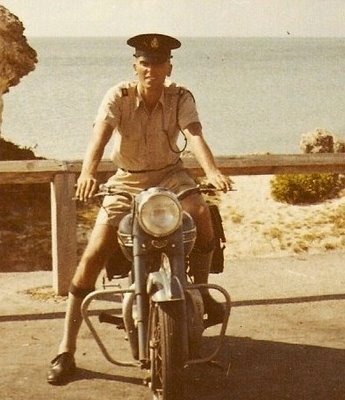
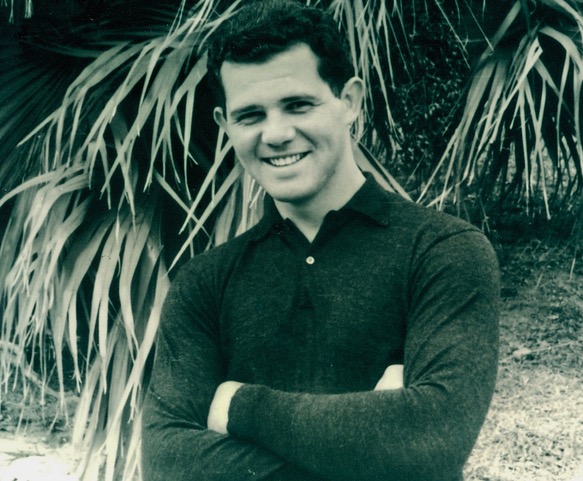
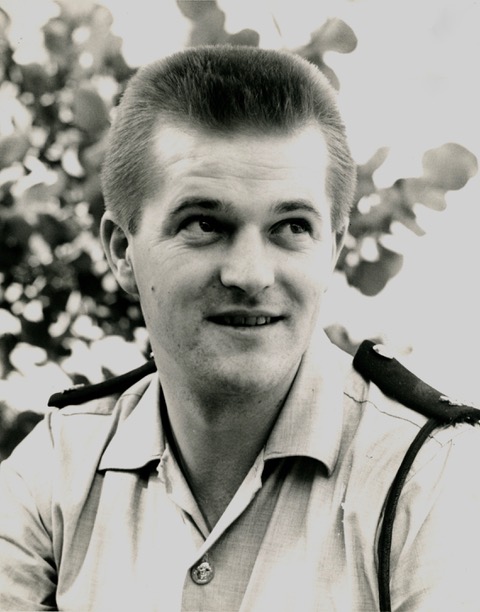
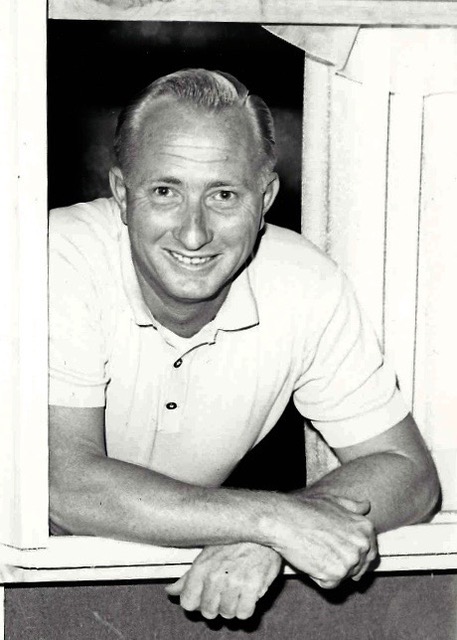
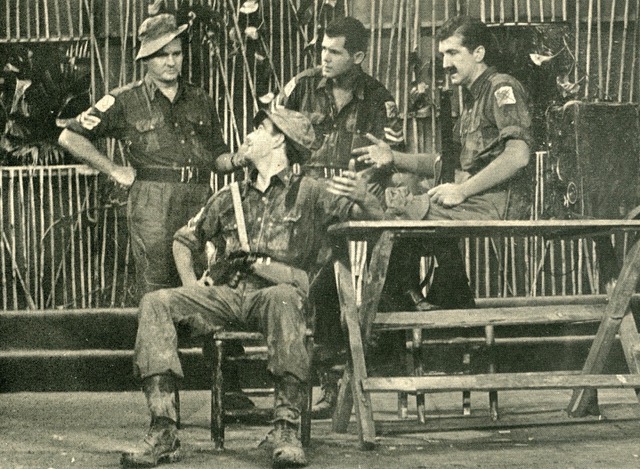
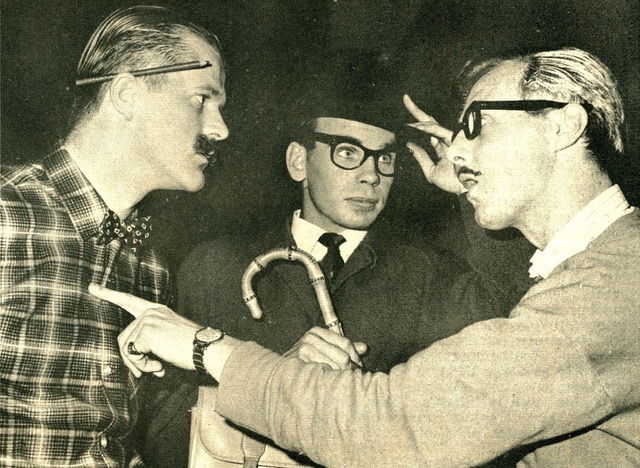
 Programme for "On Monday Next"
Programme for "On Monday Next"

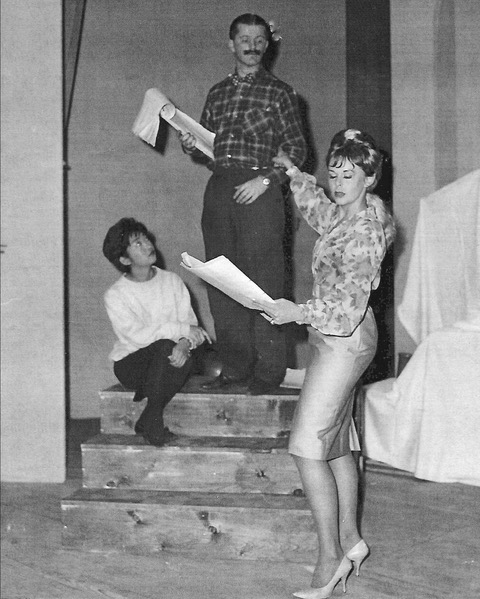
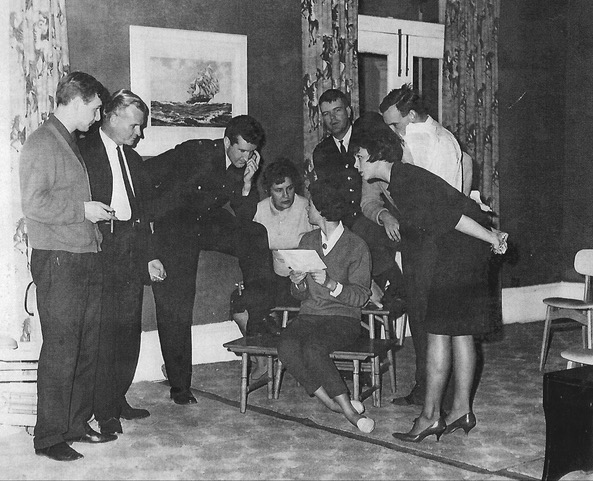
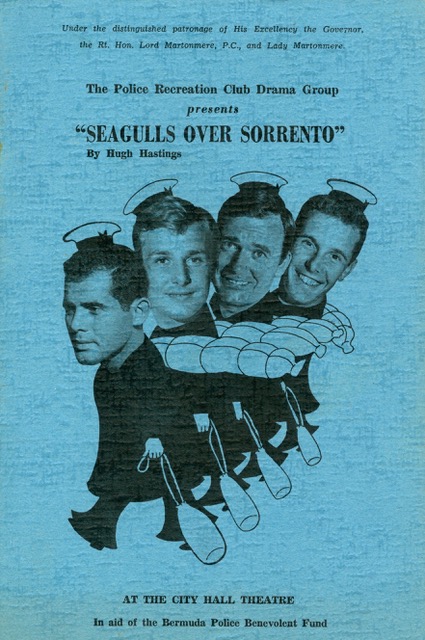



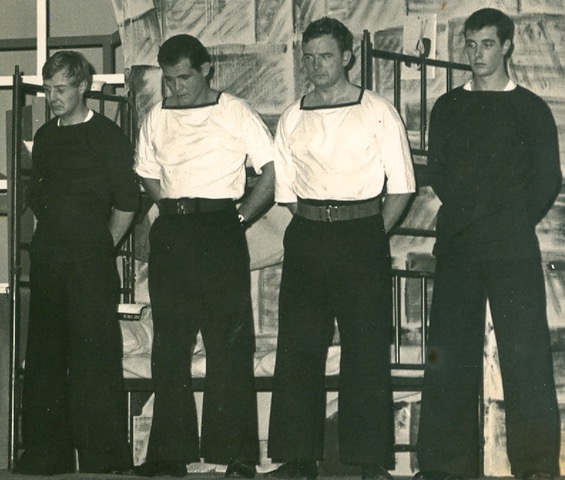
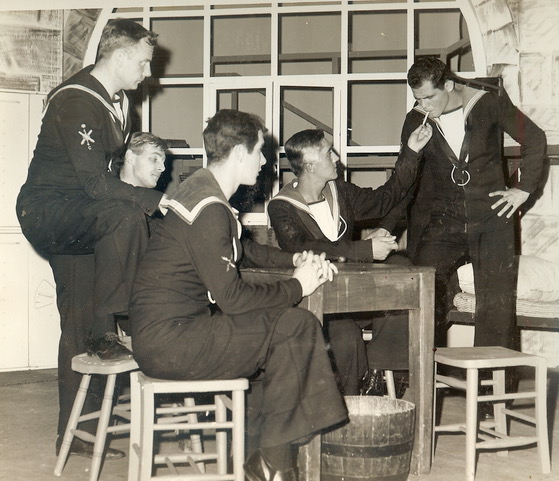
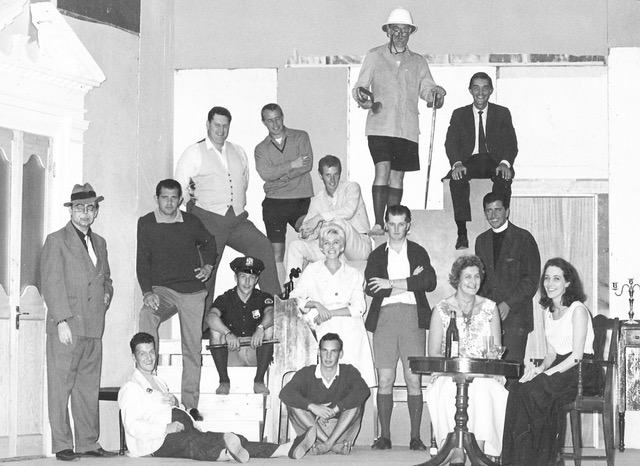
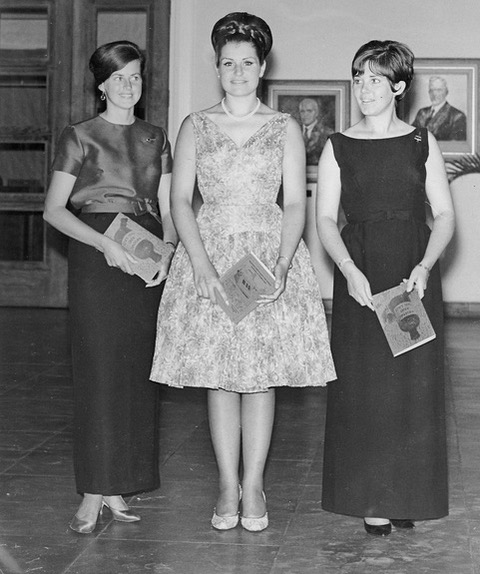
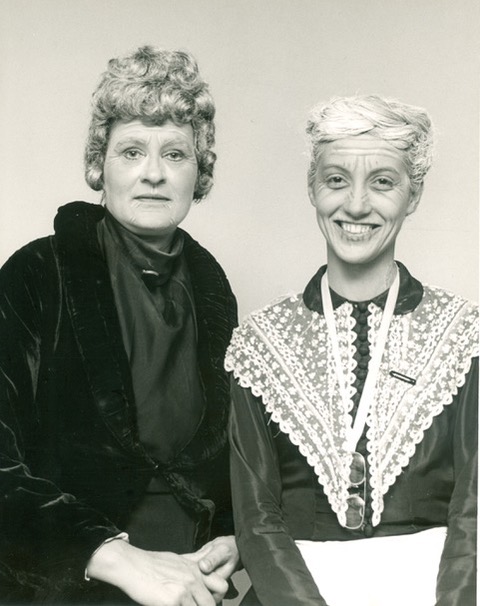
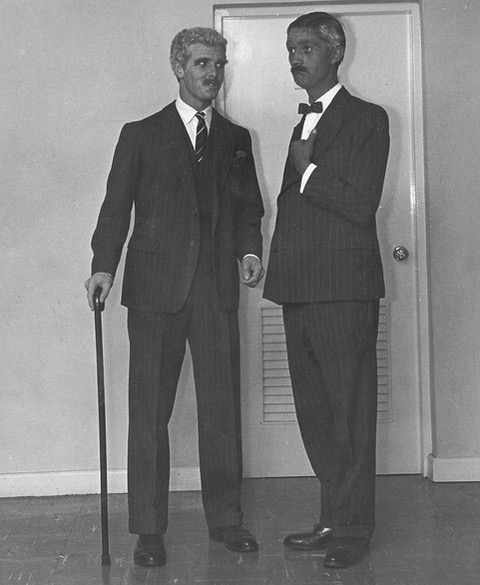
 Newspaper article about forthcoming
Newspaper article about forthcoming 